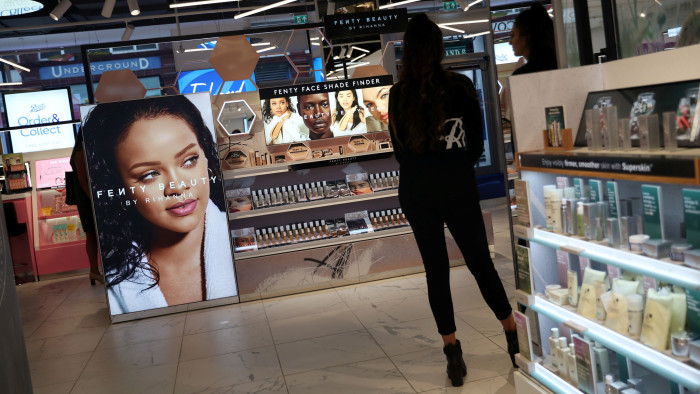Boots steps up store investment to lift sales

Roula Khalaf, Editor of the FT, selects her favourite stories in this weekly newsletter.
Boots is ramping up spending on stores and experimenting with new formats as it looks to lift sales and take back market share.
The 170-year-old chain, which has more than 2,000 stores in the UK, has been losing market share to supermarkets and discounters in recent years, while its US owner Walgreens took large dividends out of the company rather than investing.
It has already said it is reviewing some stores, thought to be about 200. On Wednesday managing director Sebastian James said the focus would be on rejuvenating stores, suggesting that the smaller pharmacy-based outlets would bear the brunt of any closures.
“Retail store numbers are not far off what we think we need,” he said as he unveiled a new look store in London’s Covent Garden. “But we need to do some rationalisation [in pharmacy]. There are high streets with three or four branches of Boots on them. It’s about reducing duplication, not coverage.”
Weaker trading has injected additional urgency to Boots’ investment plans. Same-store sales fell 2.5 per cent in the first half of its financial year, while profit was down 16 per cent. “It’s quite tough out there. There are some storm clouds gathering,” said Mr James of current trading.
Boots’ sprawling store estate is partly a product of its 2006 merger with Alliance Unichem. In the past, it has been reluctant to close pharmacies because their licences — a valuable commodity — would frequently end up in the hands of competitors.
Mr James, who ran Dixons Carphone before taking over at Boots last year, said the fate of community pharmacies partly rested on the direction the National Health Service took. “We could end up with more if the NHS decides community pharmacies have a major role to play,” he added.
Mr James acknowledged that Boots had been “unclear about the dividing line” between community pharmacy and retail in the past and had allowed stores to become “tired”.
“Most of the competition have had three or four years of working on store revamps. Now it’s our turn,” he added.
The Covent Garden store, which opens on Thursday, features Amazon-style lockers for prescription collections along with extra staff to offer advice. Elsewhere, the company has refurbished 24 beauty halls at bigger stores and introduced new brands such as Urban Decay and Fenty Beauty, created by pop star Rihanna.
Boots’ main competitors on the UK’s high streets are Superdrug, owned by Li Ka-shing’s AS Watson group, and US-owned LloydsPharmacy. But it faces threats from elsewhere too. “Boots has been losing market share for about 10 years,” said Patrick O’Brien at GlobalData. “For the first five years, it was the supermarkets but now it’s about the discounters.”
Since 2007, the share of the UK’s health and beauty market held by discounters has more than doubled to 10 per cent, Mr O’Brien added.
Walgreens has faced challenges in its domestic market too, and some have questioned whether Stefano Pessina, the veteran dealmaker who built up the Walgreens empire, is committed to the level of investment that may be required. To which Mr James retorted: “He’s never said no to me yet.”
Comments